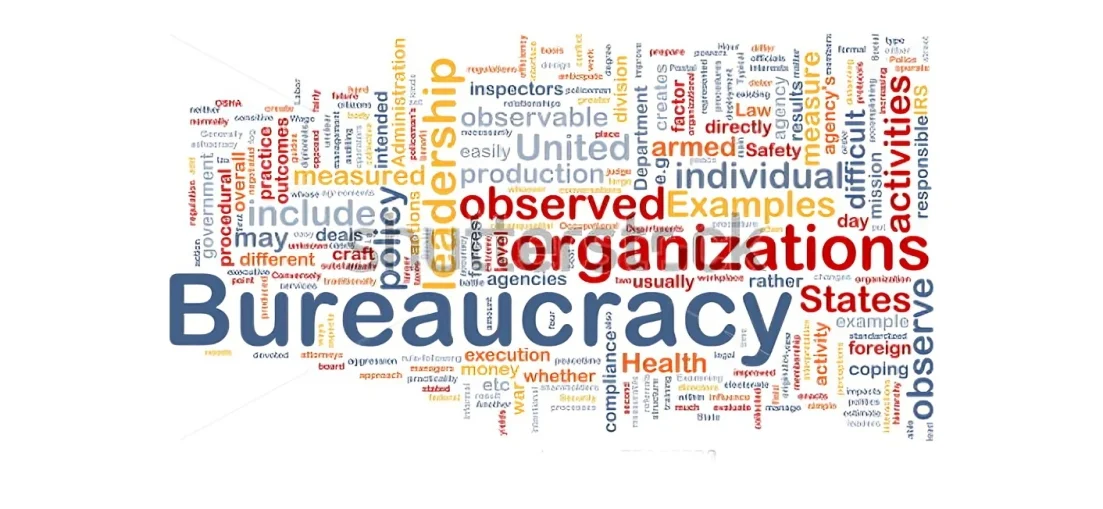Bureaucracy in Pakistan is a powerful and complex system that plays a crucial role in the governance and administration of the country. It refers to the structured group of government officials and civil servants who implement policies, manage public services, and ensure that the day-to-day operations of the state run smoothly.
From revenue collection to policy enforcement, the bureaucracy acts as the invisible engine behind almost every aspect of government activity.
The Structure of Bureaucracy in Pakistan
Bureaucracy in Pakistan is structured around the civil services, with the Central Superior Services (CSS) being the most prominent and competitive stream. It is divided into various groups such as the Pakistan Administrative Service (PAS), Police Service of Pakistan (PSP), Foreign Service of Pakistan (FSP), and other specialized cadres including Customs, Inland Revenue, Audit and Accounts, and Information.
Each group has specific roles and responsibilities. For example, PAS officers are typically posted in administrative positions like Deputy Commissioners or Commissioners at the district level, while PSP officers manage law enforcement duties. All officers are recruited through a tough examination process conducted by the Federal Public Service Commission (FPSC).
Role and Importance of Bureaucracy
Bureaucracy in Pakistan acts as a bridge between the government and the people. Its primary functions include:
- Policy implementation: Bureaucrats turn laws and regulations into action on the ground.
- Public service delivery: They ensure services like education, health, infrastructure, and law enforcement are provided efficiently.
- Revenue collection: The Federal Board of Revenue (FBR), run by civil servants, collects taxes to fund national development.
- Administrative continuity: Bureaucrats provide stability across changing political governments.
In short, without bureaucracy, the machinery of the state would grind to a halt. It is the backbone of governance in Pakistan.
Challenges Facing Bureaucracy in Pakistan
Despite its significance, the bureaucracy in Pakistan faces several challenges that hinder its performance and credibility:
- Political interference: Frequent meddling in administrative decisions weakens meritocracy and professionalism.
- Corruption and lack of accountability: Allegations of bribery, favoritism, and misuse of power have tainted the reputation of the civil services.
- Outdated training and structure: The bureaucratic system has not evolved in step with modern governance needs, making it slow and inefficient in many cases.
- Over-centralization: Most decisions are made at the federal or provincial level, leaving local bodies weak and under-resourced.
These issues create a trust gap between citizens and the bureaucracy, affecting governance quality and public service delivery.
Reforms and the Way Forward
To strengthen bureaucracy in Pakistan, several reforms are urgently needed:
- Merit-based promotions and postings: Eliminating favoritism and ensuring promotions based on performance can uplift efficiency.
- Digital transformation: Introducing e-governance can reduce red tape and improve service delivery.
- Capacity building: Continuous training and professional development are essential for modern governance.
- Decentralization: Empowering local governments can help make the bureaucracy more responsive and accountable.
Pakistan can take inspiration from successful bureaucratic models around the world, particularly those that focus on transparency, public participation, and innovation.
Read More: NADRA Adds New Features to Non-Chip ID Cards
Bureaucracy in Pakistan remains a central pillar of governance. While it has its flaws, it also holds immense potential to drive national progress if reformed and empowered appropriately. Restoring merit, reducing political interference, and modernizing systems are the keys to making Pakistan’s bureaucracy more effective and people-oriented.
Read More: Role of Education in Strengthening the Pakistani Community









